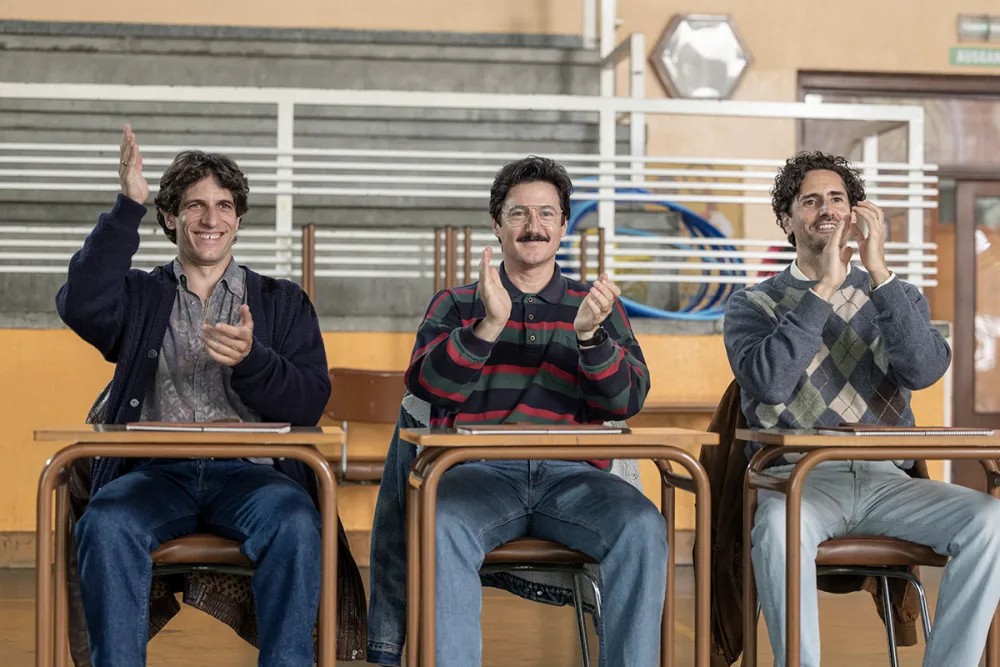Borja Cobeaga’s Breaking Walls is a warm-hearted road trip comedy about fatherhood, set against the historic backdrop of the fall of the Berlin Wall. In Bilbao, 1989, a local girls’ gymnastics team wins the chance to compete in Berlin. When the mothers are unable to accompany them, the reluctant fathers step in. Their lack of enthusiasm is obvious, they neither attempt understand the sport nor pay much attention to their children, but they nonetheless board a bus and set off across a continent in flux.
The film grounds this journey within a wider moment of upheaval. Opening with images of Bilbao’s neighbourhoods and archival photographs from the 1980s, it situates the story in a Europe on the cusp of change: the Berlin Wall is about to fall, the European Union begins to take shape, and traditional ideas of masculinity are facing challenge. These sweeping transformations ripple into the intimate space of a school trip, where fathers and daughters slowly learn to see one another and build connection. Along the way, the fathers are forced to confront themselves and their way of fatherhood shifting in quieter but no less significant ways. The ensemble cast, Quim Gutiérrez, Juan Diego Botto, Mikel Losada, Iñaki Ardanaz, Laura Weissmahr, and Ramón Barea, brings humour and warmth to this mix of personal and political change.
Breaking Walls works best as a feel-good comedy about community, connection, and the possibilities of change. Its optimism feels especially resonant today. Yet for a film centred on father–daughter relationships, the daughters themselves remain underdeveloped. There are affectionate touches, such as the girls sneaking sandwiches at the back of the coach, but their individuality rarely emerges. Too often they function as reflections of paternal neglect rather than fully realised characters with voices of their own. This limitation extends to other potentially richer dynamics, such as Néstor’s (Ardanaz) son, the only boy on the trip, whose preference for gymnastics over football could have offered a more nuanced exploration of vulnerability and masculinity through his unemployed father and the true meaning of fathering figure. Instead, his storyline is left underdeveloped.
By contrast, the fathers’ struggles are explored in greater detail: Óscar (Gutiérrez) wonders if the factory will rehire him, Néstor tries to keep afloat with a video shop, Andoni (Losada) attempting to emigrate, while Juanma (Juan Diego Botto), who once supervised the rest, tries to reconnect with his ex-employees. This imbalance leaves the daughters sidelined, when their own futures, shaped by this era of change, deserve equal weight.
The result is a charming and heartfelt comedy that captures a generation of fathers in transition, yet it does so at the expense of a more balanced father–daughter relationship, in which the daughters’ lives will carry those changes forward.
Screened as part of Edinburgh Spanish Film Festival


Comments